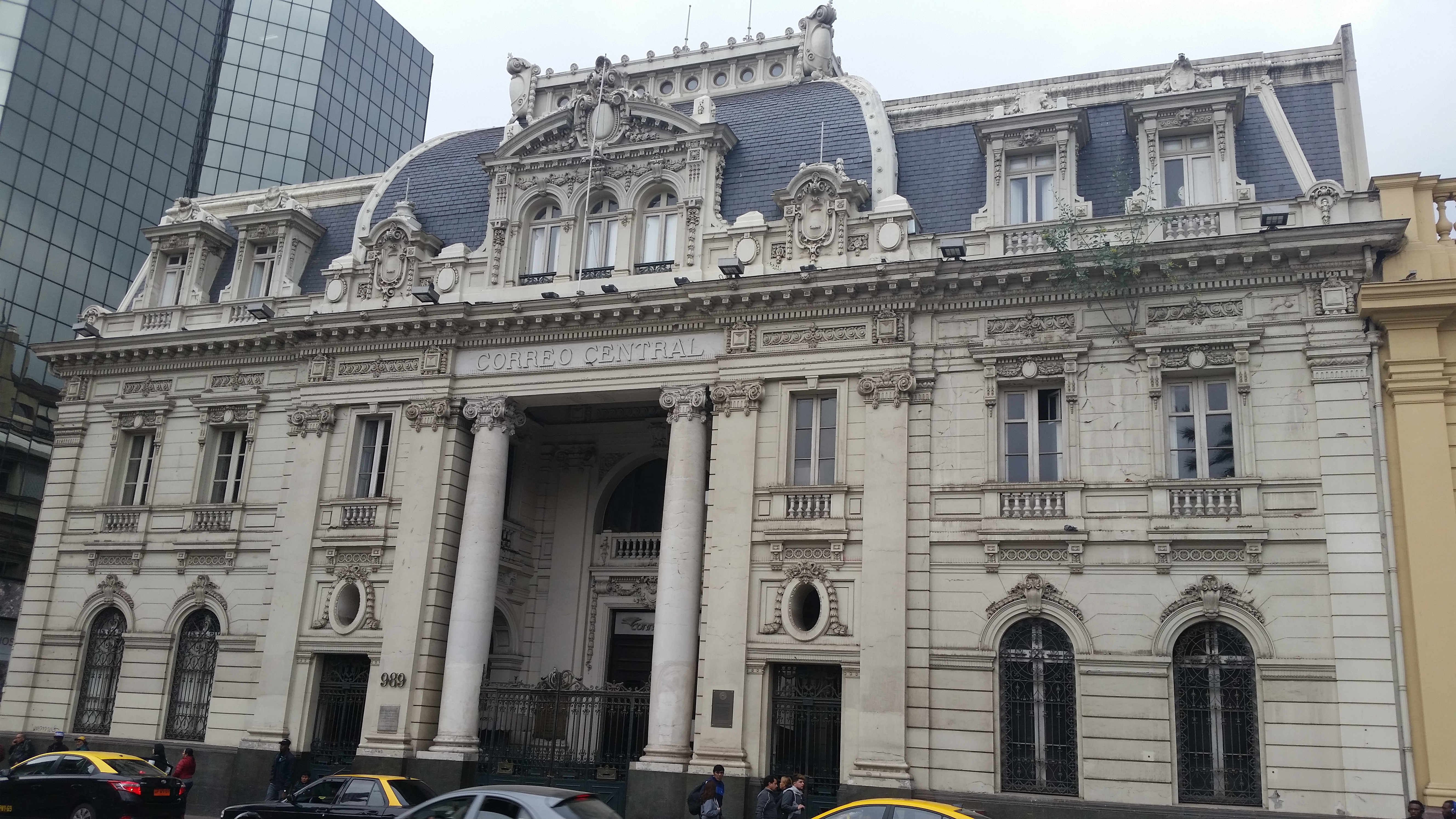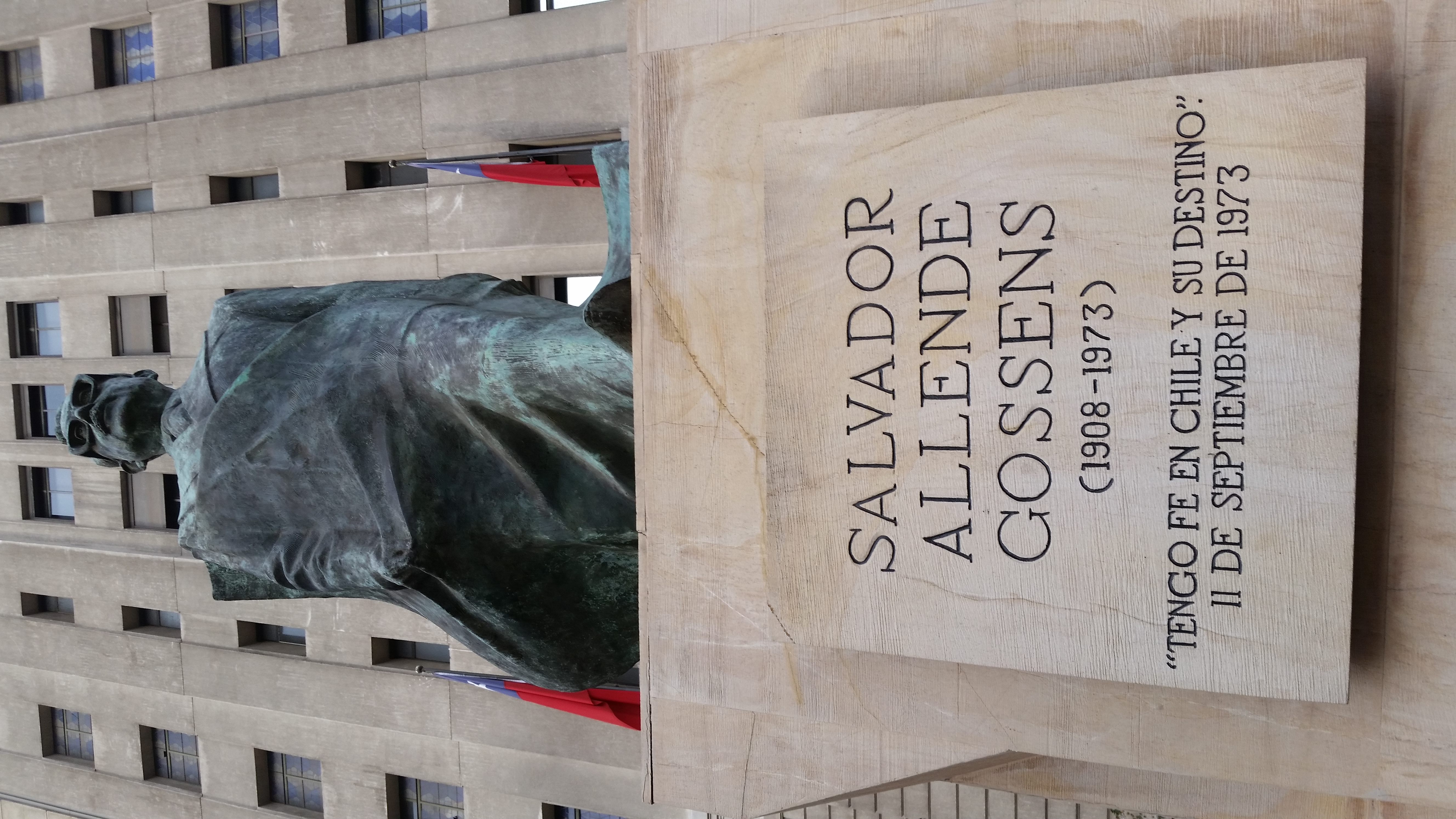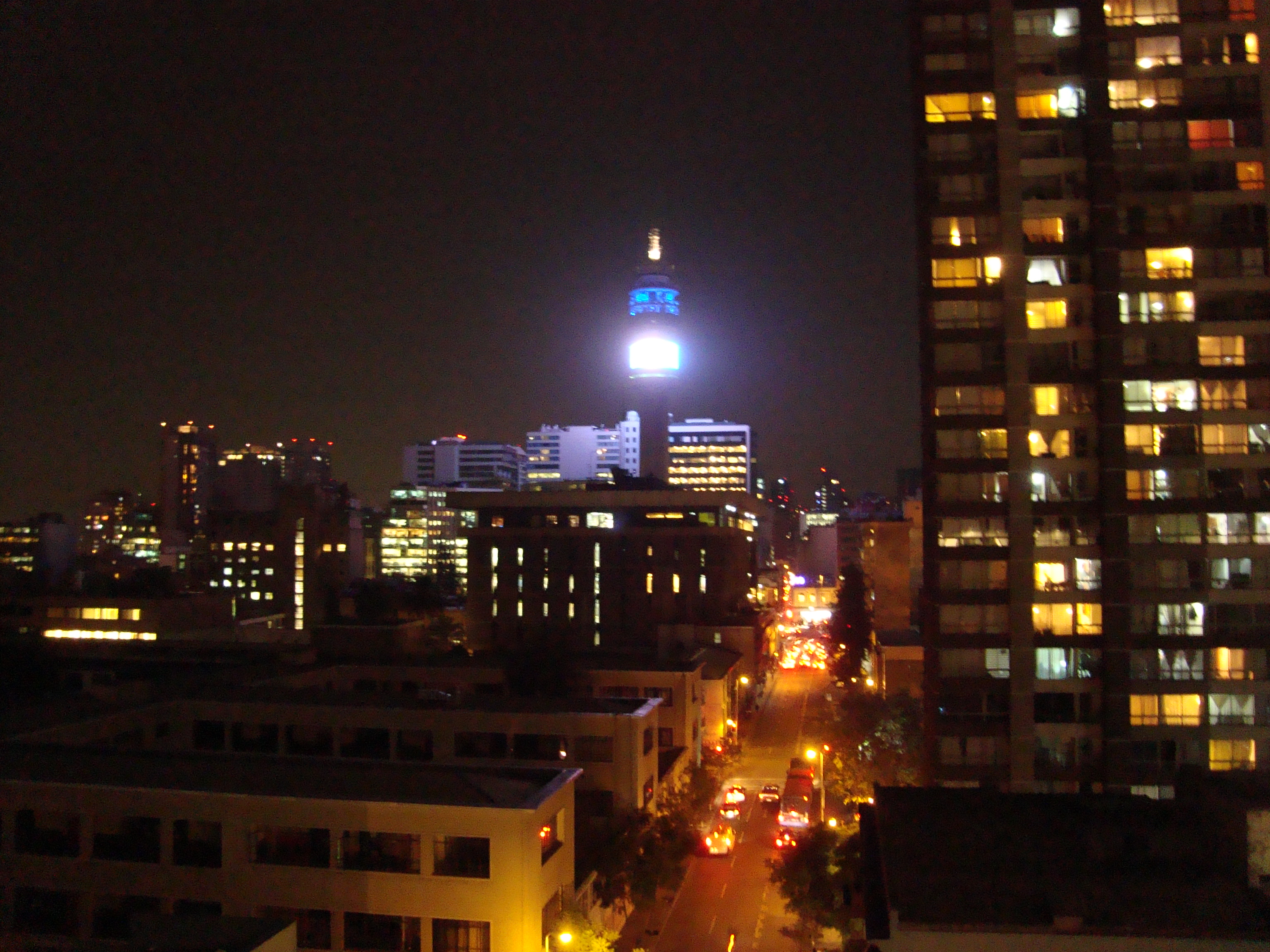Return to the search form Return to your search results
USAC Studies in Chile
Fast Facts
Sessions Offered:
Fall, Spring, Summer, Academic Year
Location:
Santiago, Chile
Credit:
Resident
Eligibility:
GPA of 2.5, good academic and disciplinary standing
Application Due:
9/19 for spring, 2/24 for fall or academic year, 3/4 for summer
Program Cost:
Click the Application tab.
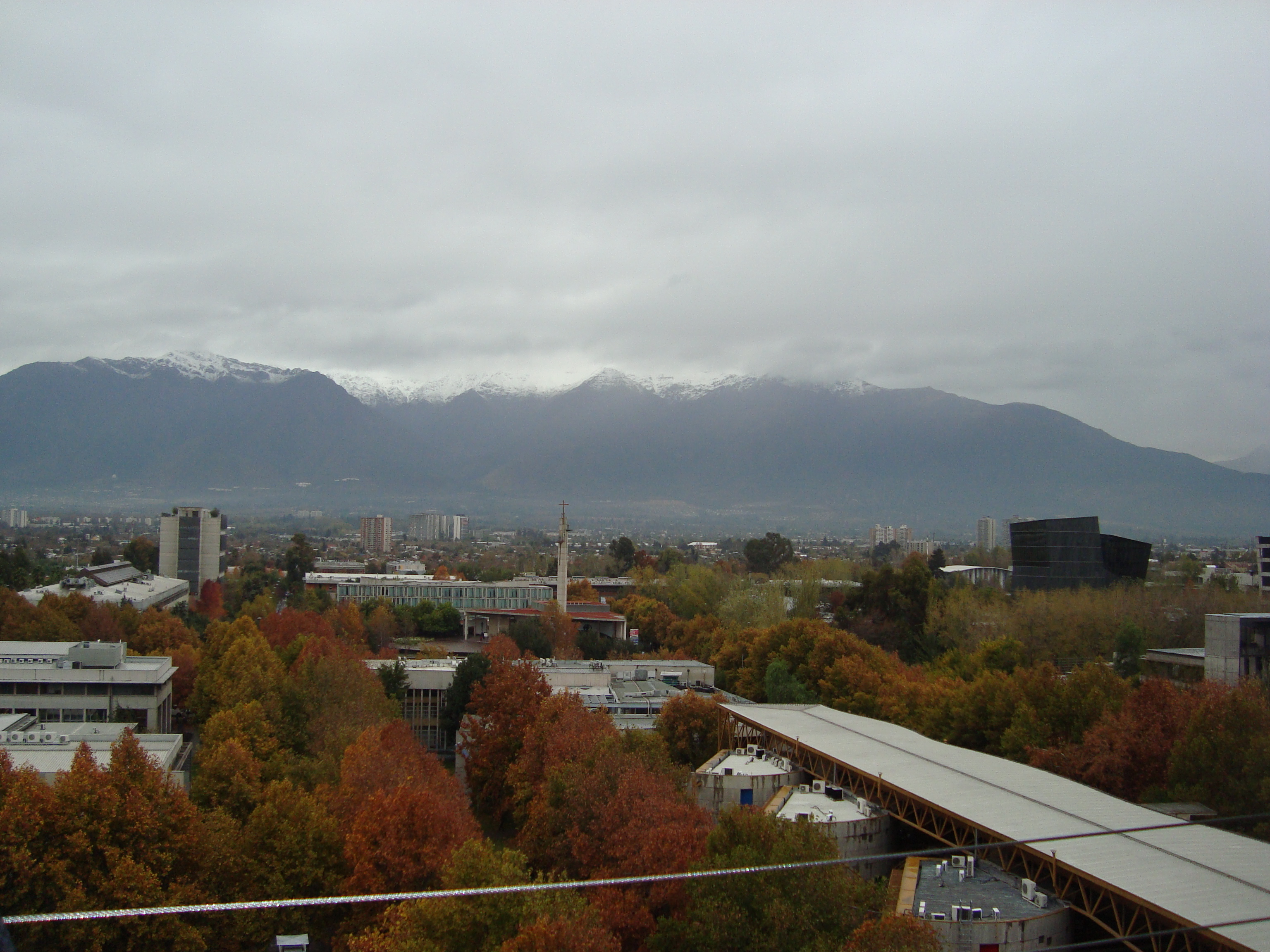
This program offers academic coursework in Spanish language, Latin American Studies, and Anthropology. The intensive language approach allows students to complete up to two years of university foreign language coursework in only one semester. The academic courses are only a part of the value of USAC Studies in Chile as students have the opportunity learn about contemporary Chilean society through personal interaction and immersion in the the host culture. The program is administered by the University Studies Abroad Consortium (USAC), of which the University of Iowa is a member. The USAC Resident Director and staff are present on-site full-time to welcome and support students during their term abroad.
Academic Program
Classes take place on the campus of the Universidad Andrés Bello, one of the new private universities in downtown Santiago. All courses are taught by local faculty, with the exception of one or two courses offered each semester by a visiting U.S. faculty member from one of the USAC consortium institutions. University of Iowa students earn resident credit for this program.
Semester
Students enroll in 12 - 18 semester hours comprised of language courses (optional) plus electives in Latin American culture, journalism, and international studies. Students may take up to two language courses in a semester- making it possible to complete a full year of Spanish language in a single term.For updated course listings and descriptions, please visit the USAC Santiago Program webpage.
Summer
USAC offers two 4-week summer sessions. Students can do either session or both. During Session I, students enroll in three to five semester hours, and in Session II students enroll en three to six semester hours. One 3-semester hour course must be taken at all times. For updated course listings and descriptions, please visit the USAC Santiago Program webpage.
Cultural Activities
Students have numerous opportunities to learn and participate in cultural activities during their time in Santiago. Students are able to attend local theatre and musical performances along with fairs and festivals. There are extracurricular activities such as playing soccer, or basketball with local students, and signing up for the conversation partner exchange. Specific course field trips are organized to the National Museum of History, the Pre-Columbian Museum of Art, and the Museum of Memory and Human Rights. USAC organizes field trips to places such as Valparaíso and Viña del Mar, Ocoa Valley, and San José de Maipo.
Program Dates
Fall: Late August to mid-December
Spring: Early January to early May
Summer Session I: Late May to late June
Summer Session II: Late June to late July
For More Information
Steps to Studying Abroad
- Before initiating an application with USAC, students must complete a Discover Study Abroad session at the University of Iowa.
- After completing the Discover Abroad session, students will receive an email with their study abroad advisor assignment.
- Once assigned, students must meet with their study abroad advisor to receive program application instructions.
Study Abroad
1111 University Capitol Centre
Iowa City, IA 52242
Phone: 319-335-0353
Email: study-abroad@uiowa.edu
Universidad Nacional Andrés Bello
Universidad Andrés Bello has approximately 30,000 students and is widely regarded as one of Chile's most important prive universities. USAC classes and the office are located at the downtown campus, conveniently situated along the subway line.
Santiago

Santiago's urban and natural framework, its mountainous terrain, and its proximity to Chile's central coastline are ideal for experiencing the nature and culture of the most southern country in the world. The city was founded in 1541 by the Spanish conquistador Pedro de Valdivia and today this capital has a total population of approximately six million people that live in the continuous urban area. The city lies between 1,600 - 2,100 feet above sea level. Santiago is the cultural, political, and financial center of Chile and is home to the regional headquarters of many multinational corporations. Santiago is marked by the very high Cordillera de Los Andes, its traditional institutions such as the Palacio de La Moneda, as well as by the tallest corporate building of Costanera Center in the financial district of Vitacura, among others. Santiago has warm dry summers (October to March) but temperatures can reach as high as 95°F on the hottest days. Winters (April to September) in Santiago are cool and humid. The typical highs in winter are around 55°F and lows can be around 32°F. Precipitation for the city is highly variable and heavily influenced by the El Niño Southern Oscillation cycle.
Chile
Chile narrowly stretches along the western coast of South America and is the southernmost country in the world. The diverse climate of Chile ranges from the world's driest desert in the north, the Atacama Dessert, to a Mediterranean climat in the center of the country to alpine tundra and glaciers in the east and south. It is affectionately known as the “country of poets” or “pais del poetas," as it boasts having two two Nobel Prize winners in literature; Gabriela Mistral, the first Latin American to receive the award in 1945, and Pablo Neruda, who received the award in 1971.
US Department of State Country Information
The US Department of State provides safety and security information for every country of the world to help you assess for yourself the risks of travel. Each country information page contains a Travel Advisory, Alerts, and other important details specific to that country that could affect you.
Pay close attention to the entry and exit requirements, local laws and customs, health conditions, and other details to help decide whether traveling to any given country is right for you. Non-US citizen travelers may also wish to seek guidance from the embassy of their country of citizenship. The UI International Travel Policy for Students addresses restrictions on student travel to high-risk locations and engagement in high-risk activities abroad.
Living Arrangements
Students will move in with their host family after orientation. All families live within a 30-to-50-minute commute to the university. Host families provide students with a room, breakfast and dinner daily. Lunch, the main meal in Chile, is available in the university neighborhood at a modes price. Living with a family provides an unmatched opportunity for practicing your Spanish and learning Chilean culture and customs and is highly recommended.
Shared apartments are available. There are private rooms and shared rooms, as well as private or share bathrooms depending on the room chosen and/or available. Each apartment has a small study area and a kitchen.
Passport
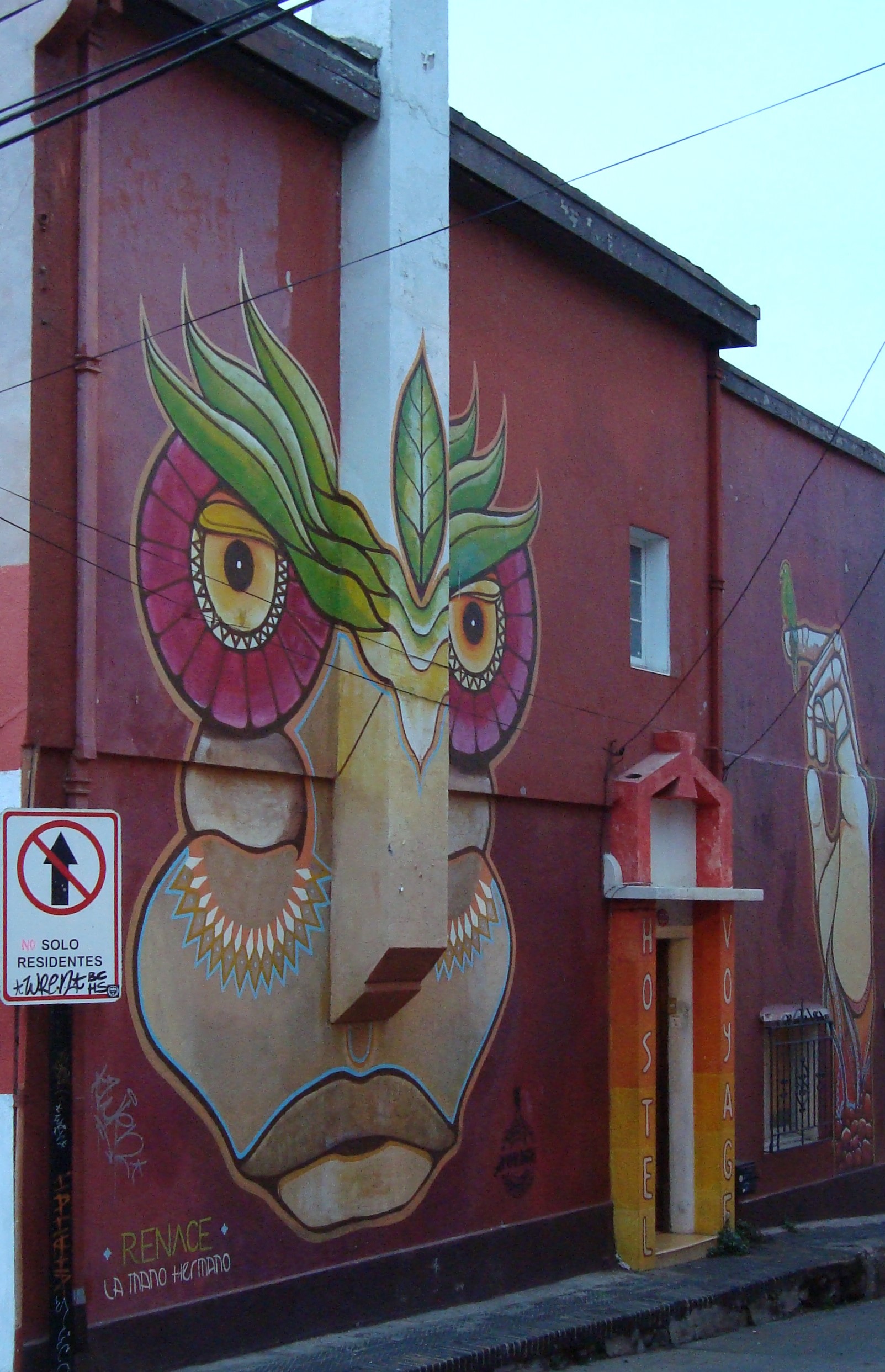
US Citizens
If you do not have a passport, it is important that you apply for one as soon as possible to ensure you receive it before the program begins. US citizens can find more information about how to apply for a passport on the US Department of State’s website.
Students with a valid passport should check the expiration date. Passports must be valid for at least 6 months AFTER the anticipated return to the US from studying abroad. If your passport is not valid for at least 6 months after your anticipated date of return to the US, you must renew your passport before applying for a visa or leaving the United States.US citizens can find more information about how to renew a passport on the US Department of State’s website.
Travel Arrangements
Students make their own travel arrangements to arrive in Chile by a designated date. Specific information will be provided in post-acceptance materials from USAC .
Local Transportation
Santiago has one of the most extensive public transportation services in the entire continent of South America. Taxis are easily identifiable, local bus lines have been integrated with the main bus lines and with the metro network, and the extensive metro system carries over two million passengers on a daily basis.
Eligibility
This program is open to UI students who fulfill the following requirements:
Good academic and disciplinary standing - It is the policy of the UI Study Abroad office that all students who study abroad must be in both good academic standing and good disciplinary standing at the time of their application. Students who, even after being accepted into a program, are put on either academic and/or disciplinary probation for any period of time overlapping with the study abroad program dates are ineligible to study abroad. In these cases, students must forfeit their acceptance and will not be allowed to study abroad. Any student who must forfeit their acceptance and/or attendance on a study abroad program due to a probationary status is wholly responsible for any and all financial expenses incurred.
Costs
Costs charged to the U-Bill
- Application fee (charged at the time of application, before financial aid/scholarships disburse)
- Course Fee- Includes program course fee, tuition, housing, meals, pre-departure advising, group flight airport pick-up, orientation, program-organized field trips, and host university student photo and ID card. (charged shortly before departure)
- University of Iowa Study Abroad Administrative Fee (charged shortly before departure)
- The mandatory Iowa Regents International CISI Health Insurance (charged shortly before departure)
Out-of-pocket costs (not charged to U-Bill)
- Food (paid by student at their discretion while abroad)
- Round trip airfare (paid by student directly to travel agent or airline- approx. 6-8 weeks prior to departure, before financial aid/scholarships disburse)
- Local transportation (paid at student’s discretion while abroad)
- Passport (paid by student prior to departure, before financial aid/scholarships disburse)
- Consular and visa fees (paid by student prior to departure, before financial aid/scholarships disburse)
- Textbooks, copyright permission fees, course packets, and other course-related materials (paid upoon arrival to your host country)
- Medical exam/immunizations (paid by student as needed prior to departure, before financial aid/scholarships disburse)
- Personal expenses and personal travel (paid by student as needed while abroad)
- Rental or purchase of required cell phone- does not include usage fees (paid as needed while abroad)
Cost Sheet
The cost sheet outlines the total estimated costs associated with participating in this program and can be used for financial aid and planning purposes. They include fees charged on students’ U-Bill as well as out-of-pocket expenses. Actual out-of-pocket expenses will vary from individual to individual. Quoted estimates are conservatively high, yet realistic.
Semester
 USAC Studies in Chile - Fall 2025
USAC Studies in Chile - Fall 2025 USAC Studies in Chile - Spring 2026
USAC Studies in Chile - Spring 2026
Summer
 USAC Studies in Chile - Summer Session II - 2023
USAC Studies in Chile - Summer Session II - 2023
Scholarships & Financial Aid
Most financial aid (scholarships, grants, and loans) is applicable to study abroad programs. Please check the Study Abroad website for information on financial aid and how it may be applied to studying abroad. You are also encouraged to speak with someone at the Office of Student Financial Aid to explore financial aid options. Scholarship opportunities exist for study abroad participants. Please explore Study Abroad’s websites for UI Study Abroad Scholarship Opportunities.
USAC funding opportunites are available for students participating in a USAC program. The comprehensive list of scholarships is detailed on USAC's Scholarships and Discounts webpage.
How to Apply
Steps to Studying Abroad
- Before initiating an application with USAC, students must complete a Discover Study Abroad session at the University of Iowa.
- After completing the Discover Abroad session, students will receive an email with their study abroad advisor assignment.
- Once assigned, students must meet with their study abroad advisor to receive program application instructions.
Students will need to complete a University of Iowa Study Abroad application and a USAC Online application. Information on these applications will come from the study abroad advisor. Final admissions decision is made by USAC.
Application Deadline
Fall and Academic Year: February 24
Spring: September 24
Summer: March 4
Preparation
It is highly recommended that students review the following information:
Health & Safety Planning
 Health Preparation Guide for International Travel form with their medical practitioner. This document is intended to help you plan for your medical needs abroad. Please DO NOT turn this form in to UI Study Abroad.
Health Preparation Guide for International Travel form with their medical practitioner. This document is intended to help you plan for your medical needs abroad. Please DO NOT turn this form in to UI Study Abroad.
Visa
Orientation
In order to prepare for your time abroad, you are required by the University of Iowa to complete two orientations. In addition to orientations provided UI Study Abroad, USAC may have other required pre-departure orientations and information. Please see below for more information.
Online Education Abroad Pre-Departure Orientation
You are required to complete the International Programs online “Education Abroad Pre-Departure Orientation” course distributed through ICON prior to departure. This orientation is mandatory for all students going abroad under the auspices of the University of Iowa. It covers many practical matters about living overseas, such as health and safety, communication, money, goals and much more. You will be enrolled in this course by International Programs and an email will be sent to you once enrolled. If you have any questions you can email safety-abroad@uiowa.edu.
Program-Specific Orientation
This orientation will be facilitated by your study abroad advisor and will cover content specific to the University of Iowa including, but not limited to, billing, insurance, the Credit Approval Form (CAF), and transcripts. It could be conducted in a group setting or one-on-one depending on the type of planned activity abroad. Your study abroad advisor will send you more information about this mandatory in-person session.
USAC Orientation
USAC provides students with pre-departure documents in their USAC GATEWAY that include such topics as; Visa Guide, Arrival Guide, Site specific COVID guidelines, Pre-Departure Timeline, Packing Lists, Study Abroad Toolkit, and On-site wellness guide. In addition to the information on the USAC Gateway, USAC has a Virtual Orientation for students and parents and students will have one mandatory advising Zoom or phone session with USAC. Moreover, USAC has site-specific webinars with enrolled students and/or on-site staff.
